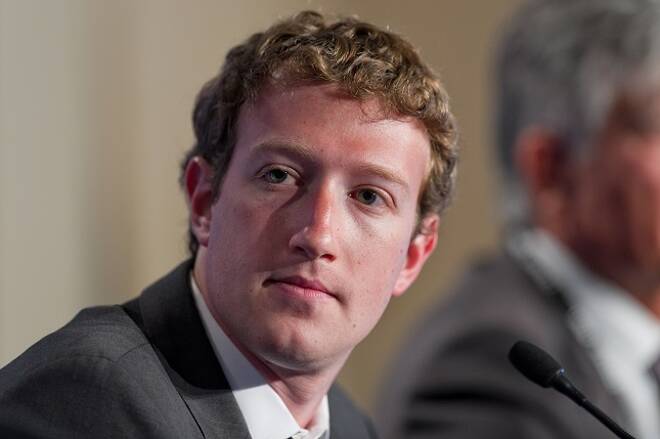Advertisement
Advertisement
Facebook Must Have a Moral Duty, It’s a Social Network!
By:
The Facebook scandal refuses to ease. Facebook saw close to $37bn wiped off its market cap on Monday as the markets responded to the news over the weekend of Facebook Inc. selling data of more than 50m users without permission. Zuckerberg said yesterday "We don't sell any data to anyone" but did not reject regulation.
While Cambridge Analytics is facing heavy scrutiny over the use of the data acquired from Facebook Inc., the bigger finger should be pointed directly at Zuckerberg and the company’s board that has spent the last 18-months and more dodging serious questions over the company’s affiliations with companies and governments and the use of ads during the 2016 U.S Presidential Election.
Congress, the financial markets, Facebook shareholders and even Facebook’s users have yet to hear from the Facebook Inc. board concrete answers on how the Russians were able to use Facebook to influence voters with targeted ads during the election campaign. Yesterday, Zuckerberg interviewed for CNN and responded to the big Facebook scandal.
Even more disturbing is how Facebook attempted to get ahead of the weekend news that was going to lift the lid on the Cambridge scandal by announcing the suspension of Cambridge Analytica from Facebook on Friday. The spin doctors hard at work to limit yet more damage to the Facebook Inc. brand.
The fact that Facebook Inc. execs were fully aware of the news due to hit UK and U.S readers on Sunday brings into question Zuckerberg and the team’s moral compass. In a normal world, the CEO of a $500bn would not be allowed to be so evasive to questioning. Why Congress is willing to accept such elusiveness is also surprising, particularly when considering how financial institutions are punished for the breach of rules and regulation related to sanctioned countries. Fines in the billions of Dollars and personal liability for those at fault common outcomes to such actions in recent years.
The world’s 4th richest person should not be untouchable and the more than 50m Facebook users would likely agree that the punishment for top execs at the social network company, that has become all too anti-social, should be more than the loss in share value in the early part of the week.
Facebook Inc. has become too big for users to ditch for an alternative social networking site that doesn’t exist. Perhaps it’s time for a new platform to be rolled out using blockchain technology that would undoubtedly win the hearts of the privacy-conscious.
User information is just not safe and the fact that the U.S government is unwilling to drag Zuckerberg and co across hot coals suggests that targeted advertising is here to stay and, as for users’ personal information, clearly no issue on that front.
Looking at Facebook’s top 10 shareholders, we’re unlikely to see many ditch their holdings in response to the latest scandal, with asset management companies accounting for the lion’s share, nor are we likely to see any rumblings at the next AGM, barring the odd activist who may have brought some Facebook shares back in the day.
If companies are not able to self-govern and ensure the protection of its users’ data, their customers’ data, not to mention ensure that the use of targeted ads for political gain are made public and not concealed, then there is a moral duty for the U.S government to enforce such code of ethics.
Investors have been too kind to Facebook Inc. this time around, with speculators bargain hunting and, why not when considering the slide, but capital is at risk, particularly if the U.S government takes the boldest of steps and decides to shut it down. Now that would be a lesson in morality…
About the Author
Bob Masonauthor
With over 28 years of experience in the financial industry, Bob has worked with various global rating agencies and multinational banks. Currently he is covering currencies, commodities, alternative asset classes and global equities, focusing mostly on European and Asian markets.
Advertisement
